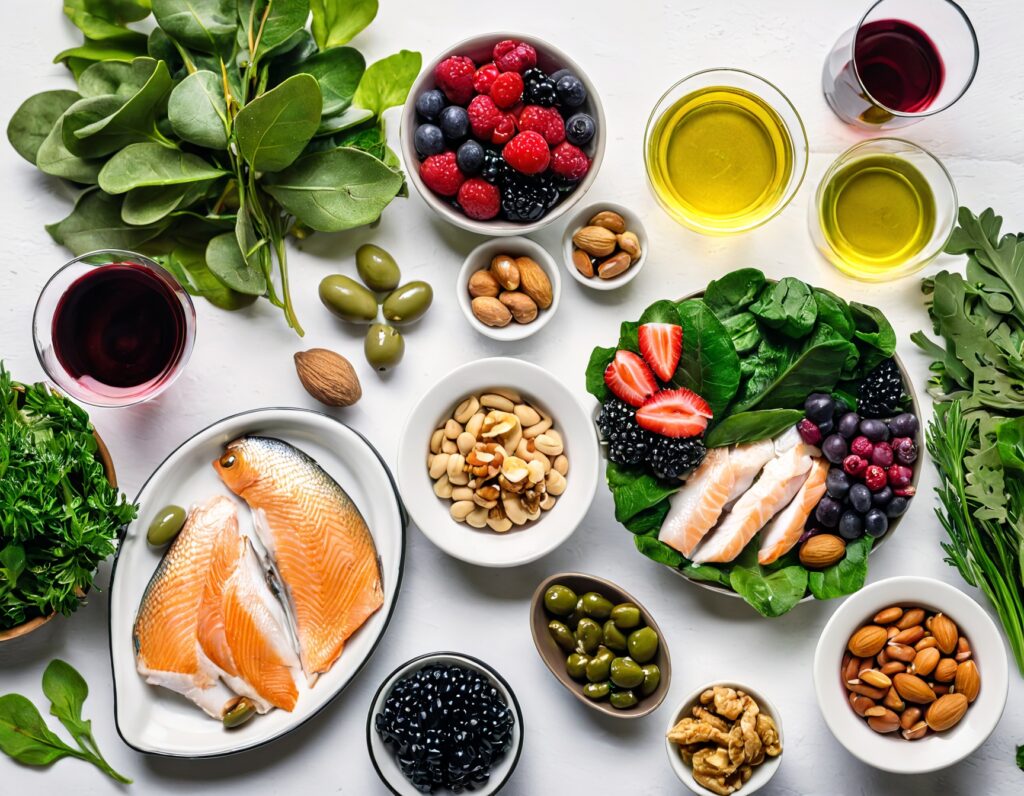Top MIND Diet Foods to Preserve Your Brain Health
When it comes to maintaining cognitive health and staving off age-related decline, the food you consume plays a critical role. The MIND diet, a hybrid of the Mediterranean and DASH diets, focuses on foods that nourish the brain and reduce the risk of neuro degenerative diseases. Are you ready to discover the best foods to incorporate into your diet for optimal brain health? Let’s dive into the top MIND diet foods that can help keep your brain young and sharp!
What is the MIND Diet?
MIND stands for Mediterranean-DASH Diet Intervention for Neuro degenerative Delay. It combines aspects of both the Mediterranean and DASH diets, which are known for their heart-healthy benefits, to specifically target brain health. Emphasizing whole foods, healthy fats, and eliminating detrimental items, the MIND diet has been linked to a reduced risk of Alzheimer’s disease and improved cognitive function.
Top MIND Diet Foods for Brain Health
Incorporating these foods into your diet can help promote a healthy brain and potentially delay the onset of cognitive decline.
1. Leafy Green Vegetables
Leafy greens such as spinach, kale, and collard greens are rich in nutrients like vitamin K, folate, and beta carotene. These nutrients are crucial for brain health. Aim to consume at least one serving of leafy greens per day to maximize their benefits.
2. Berries
Berries, especially blueberries and strawberries, are packed with antioxidants that help fight inflammation and oxidative stress, both of which are linked to brain aging and neurodegenerative diseases. Include a serving of berries in your diet multiple times a week for a brain-boosting treat.
3. Nuts
Nuts are a fantastic source of healthy fats, antioxidants, and vitamin E, which may help protect the brain from age-related damage. Walnuts, in particular, have been studied for their positive effects on brain health. Aim to consume a small handful of nuts each day to benefit from their brain-protective qualities.
4. Olive Oil
Olive oil, a staple of the Mediterranean diet, is rich in monounsaturated fats and antioxidants, which have been shown to improve brain function. Use extra-virgin olive oil as your primary cooking oil to support cognitive health.
5. Fish
Fatty fish like salmon, trout, and sardines are excellent sources of omega-3 fatty acids, known for their anti-inflammatory properties and ability to improve brain function. Consuming fish at least once a week can provide significant brain health benefits.
6. Beans
Beans are rich in fiber, antioxidants, and B vitamins, which are essential for brain health. Incorporate various types of beans into your diet at least three times a week to support cognitive function.
7. Whole Grains
Whole grains such as oats, quinoa, and brown rice provide essential nutrients that promote brain health, including fiber, B vitamins, and magnesium. Aim to replace refined grains with whole grains to improve your overall cognitive health.
8. Poultry
Lean poultry like chicken and turkey are excellent sources of protein and B vitamins, which are important for maintaining cognitive function. Eat poultry at least twice a week as part of your MIND diet regimen.
9. Wine (in moderation)
Moderate consumption of wine, especially red wine, has been associated with better brain health due to its polyphenol content. However, it’s important to limit intake to one glass per day to avoid potential negative effects.
Foods to Limit on the MIND Diet
While incorporating brain-healthy foods is essential, it’s equally important to limit foods that can be detrimental to cognitive function. These include:
- Butter and Margarine: High in saturated fats, which can negatively impact brain health.
- Cheese: Limit to less than one serving per week due to its high saturated fat content.
- Red Meat: Consume sparingly, aiming for less than four servings per week.
- Fried and Fast Foods: These foods often contain unhealthy trans fats and are best avoided.
- Sweets: Reduce your intake of sugary snacks and desserts to no more than five servings per week.

Practical Tips for Following the MIND Diet
Adopting the MIND diet doesn’t have to be overwhelming. Here are some practical tips to help you get started:
- Plan Your Meals: Incorporate brain-healthy foods into your weekly meal plan to ensure you’re meeting your nutritional goals.
- Swap Ingredients: Replace unhealthy ingredients with MIND diet-approved alternatives, such as using olive oil instead of butter.
- Snack Smart: Choose nuts, berries, or whole-grain snacks instead of processed options.
- Cook at Home: Preparing meals at home allows you to control ingredients and make healthier choices.
- Stay Hydrated: Drinking plenty of water supports overall brain health and functioning.
Conclusion
Maintaining cognitive health is crucial as we age, and the MIND diet offers a comprehensive approach to achieving this goal. By incorporating brain-healthy foods such as leafy greens, berries, nuts, and fish, and limiting unhealthy items like saturated fats and sweets, you can help preserve your brain health and reduce the risk of neurodegenerative diseases. Start integrating these top MIND diet foods into your routine today for a healthier, sharper tomorrow!
“`
This HTML format adheres to SEO best practices by using H1, H2, and H3 headers, strategically placing keywords, and utilizing bulleted lists for readability. Additionally, bold tags emphasize important points to draw reader attention.

Comments are closed.